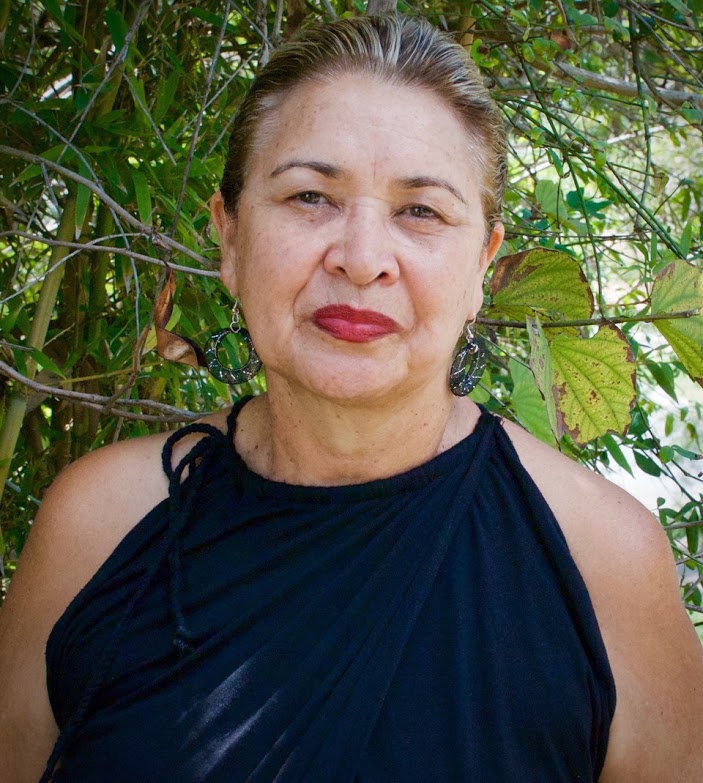Professor, Queensland University of Technology
Can you tell me about your experiences as an Research Higher Degree student?
It was actually quite isolating. I think it is isolating to do a PhD anyway but being an Indigenous PhD student I was even more isolated. Within my school I was on the margins in terms of the research that I was doing, as well as just being the one black person in that school doing a PhD. When I was studying, the school that I was enrolled through was going through a restructure and during that time the Indigenous health unit, which I was part of, was pretty much demolished. So both of my supervisors moved to other institutions. They continued to supervise me unofficially and it was through their generosity that I had some consistency, but it was really very isolating. I didn’t really get to go to many of the postgrad things, because they weren’t supportive spaces for me.
It was isolating from that perspective then it’s also isolating because I didn’t have anyone of my family or my community who understood the journey I was going through. I didn’t have friends or people in my social network that could read things for me, or talk through what I was going through, or reflect on how hard it is to be a writer. So it was isolating from both sides.
I started in 2003 and at that time there wasn’t the critical mass of Indigenous Research Higher Degree students that we’re seeing now. I spin out now going to forums and you see a room full of people who are doing their PhDs. The increase in numbers has been in more recent years. I finished in 2007 and even then, there were maybe 100 in the country that had done their PhD. I think it’s been since that time until now that there’s been a more significant increase. I say to students now through going, there are so many opportunities to support Indigenous postgrad students. It’s so awesome. You can actually go to things where there are other black people doing PhDs. I didn’t have that when I was doing mine. I met a couple, but they were interstate. That was by chance and us initiating a relationship, as opposed to there being a formalised gathering where we could come together. The only one thing I did go to in the final year was the first the summer school at The University of Melbourne.
What was your pathway into a Research Higher Degree?
So I did an undergraduate degree and then I went out to work because I had a scholarship where I had to do bonded rural service. While I was doing my bonded rural service, one of the lecturers who taught me during undergrad nagged me to do Honours. He saw something in me. So I was able to do Honours while I was working out in a rural community as a health worker. I incorporated that into my work. So officially I was working full time while studying full time. I made it part of my work. I did a couple of years of research work back with UQ for a while and the same person who pushed me to Honours said, you really should think about doing a PhD. I sort of decided to go ahead and do it because I was planning to have children and I thought that I could do that and continue to study.
I didn’t realise what I was getting myself in for. I just had my eldest son and he was just about to turn one. The same person who was supervising me in Honours, then supervised me in my PhD. It was basically his encouragement because I had no idea what honours was, or PhD or any of that stuff. I didn’t have any aspirations to be an academic.
What support mechanisms or aspects of university life have contributed to you completing a Research Higher Degree?
Exposure to research as an undergraduate student helped me get a sense of what that is and developed my confidence, that I actually knew I had skills in that area. Then I had supportive relationships that encouraged me. There are so many opportunities to support Indigenous postgrad students now. It is so awesome.
What advice would you suggest for current Aboriginal and Torres Strait Islander students contemplating a Research Higher Degree?
I strongly encourage people to pursue a Masters, Honours and PhD. It is hard but I think it’s worth pursuing. I think it’s becoming easier these days because there is that critical mass and there are structural organisations that help support Indigenous students. I also encourage them that it’s okay if they don’t intend on being an academic. There are other research pathways. When I finished my PhD, I didn’t become an university-based academic as such. I worked in project work and health service research, while I had a small family. I eventually secured a full-time academic position some years later. So for me it’s just really about encouraging students just to go on a journey. It keeps doors open in ways that you might not anticipate at the time when you are doing it. I also encourage undergraduate students thinking about doing a Research Higher Degree to think about their own identity in this journey. In terms of whether they see themselves as an Indigenous person who happens to be doing research or whether they’re an Indigenous person who does research and their Indigeneity informs their research agenda and methodological approach.
Photo credit: Lyndon Mechielsen, The Australian

